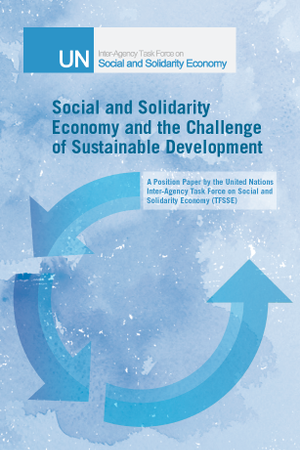This position paper has been prepared by members and observers of the United Nations Inter-Agency Task Force on Social and Solidarity Economy. It responds to the concern that the process of crafting a post-2015 development agenda and set of Sustainable Development Goals (SDGs) has paid insufficient attention to the role of what is becoming increasingly known as the Social and Solidarity Economy (SSE).
SSE refers to the production of goods and services by a broad range of organizations and enterprises that have explicit social and often environmental objectives, and are guided by principles and practices of cooperation, solidarity, ethics and democratic self-management. The field of SSE includes cooperatives and other forms of social enterprise, self-help groups, community-based organizations, associations of informal economy workers, service-provisioning NGOs, solidarity finance schemes, amongst others.
The Task Force believes that SSE holds considerable promise for addressing the economic, social and environmental objectives and integrated approaches inherent in the concept of sustainable development. This paper illustrates this potential by examining the role of SSE in selected issue areas which, we believe, are central to the challenge of socially sustainable development in the early 21st century.
Download the Position Paper
Contents
Executive Summary
Introduction
Social and Solidarity Economy: What It Is and Why It Matters
1. Transitioning from Informal Economy to Decent Work
2. Greening the Economy and Society
3. Local Economic Development
4. Sustainable Cities and Human Settlements
5. Women’s Well-Being and Empowerment
6. Food Security and Smallholder Empowerment
7. Universal Health Coverage
8. Transformative Finance
Enabling SSE
Notes





